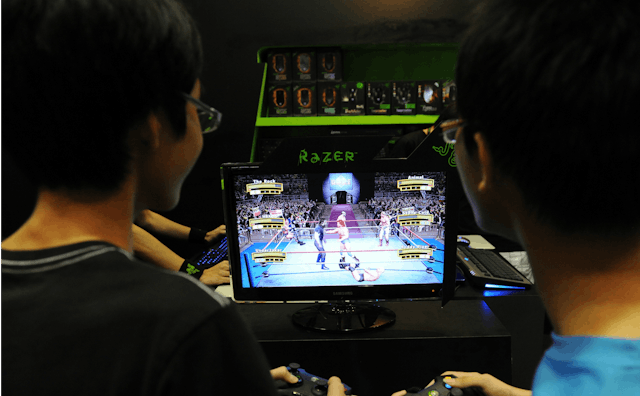Why Your Teen Is Addicted to Video Games

In 2009, researchers from Iowa University found that 88 percent of children 8 to 18 play video games and approximately 8.5 percent of those children were clinically addicted to video games. In 2013, the American Psychiatric Association published the fifth edition of the Diagnostic and Statistical Manual of Mental Disorders (DSM-5) and included “internet gaming disorder” (IGD) for the first time as a psychological condition that warranted future research. With video games now ubiquitous, compulsive gaming is becoming a very real problem.
But why do some kids get addicted and others don’t? Recent research suggests that some kids may actually be wired for addiction to video games. A new study published in the Journal of Adolescent Health measured parasympathetic and sympathetic nervous system activity of 375 teenagers and found that abnormal activity in either system could predict video game addiction.
Does the Rubik’s Cube Stress Your Teen Out?
The researchers first measured parasympathetic nervous system activity while the teen subjects tried to solve a Rubik’s Cube; the parasympathetic nervous system regulates relaxation. When we’re confronted with a challenging task, our parasympathetic nervous system activity is supposed to withdraw as we become more alert and focused. The researchers found that teens whose parasympathetic nervous system activity remained at the same level when working on the Rubik’s Cube were more likely to exhibit video game addiction behaviors a year later.
Researchers also measured sympathetic nervous system activity among teens as they collaborated with family members to solve a problem; the sympathetic nervous system stimulates the “fight-or-flight” response during stressful situations. Teens whose sympathetic nervous system activated during interaction with their family were also more likely to exhibit video game addiction behaviors a year later.
It’s Not a Parenting Fail. It’s Biological.
What does this all mean? “We often view video game addiction as a failure of the parent or the child, but this research shows that there is something that might be physiologically different about the children and there are things they can do to prevent pathological video game use,” said the study’s lead author, Sarah Coyne.
The study suggests that teens who are bored and teens who are anxious in social situations are more likely to be addicted to video games. Similar studies have drawn the same link for people with substance and gambling addiction.
Tips to Steer Kids Away From Compulsive Video Gaming
Consider counseling: Shaifali Sandhya, a psychologist who practices in Chicago, says that family stress is a very common cause of video game addiction. If a child is especially predisposed to stress during family interactions, they might need special attention during upheavals such as divorce or a death in the family.
Teach kids coping mechanisms: Video gaming is an escape, says Sandhya, and video game addiction may be a sign that your teen has stresses they are unable to deal with. Steering your teen toward other healthier coping strategies, such as exercise, meditation, or painting, will help prepare them for the stresses of adult life.
Give them a challenge: If your teen is not being mentally stimulated by the activities available to them, they might turn to video games, says Sandhya. Enrolling them in a new class or introducing them to a new hobby might give them the mental stimulation they need.
This article was originally published on